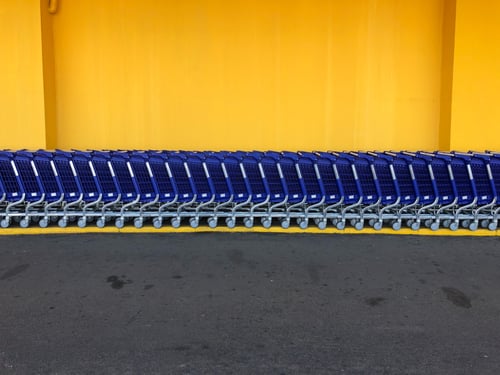Retail is changing, but change is inevitable in all industries. Much has been said in recent months about Amazon Go and its potential impact on how retailers build and staff their stores, and customer expectations for their experiences there. With so much concern about the retail apocalypse, brick-and-mortar retailers need to continually innovate. But the technology is new, and the plan for Amazon Go is largely unproven at scale: Amazon Go planned to open 3,000 stores by 2021, but only 15 stores have been opened so far. Enter Caper.
Caper has created an AI-powered shopping cart that uses computer vision technology to detect items as they are added to the physical cart, and automatically charge customers for each item. On September 10, 2019, Caper announced $10 million in Series A funding to facilitate rolling out Caper to more stores.
Caper has already processed over 10,000 transactions in stores around North America and plans to roll out 1,000 more carts in the coming year. Where Caper differs in its model is that the technology is housed in the shopping cart itself and does not require the extensive and expensive in-store infrastructure that Amazon Go requires. Stores can quickly and easily implement the carts rather than renovating the entire store while also promoting special deals as customers do their normal shopping. The first Amazon Go store allegedly cost $1 million to build, which is not sustainable for a typical grocery chain.
In a similar vein, Simbe just announced $26 million in Series A funding for its inventory robot, Tally. Tally autonomously roams a store capturing inventory data that its platform can use to create action items and analytics. While both of these solutions are functionally different, the goal is the same: to use technology to improve the store experience for customers and businesses.
Retailers have been slow to adopt technology to improve the store experience, and e-commerce has stepped in to fill that gap. While stores taking an omnichannel approach are finding success, there isn’t much to help segments that are trickier to digitize like groceries. Online grocery delivery services are taking off, but grocery stores themselves haven’t modernized much. Caper and Simbe may change that, especially as they work alongside existing store infrastructure.


 by Lauren Fram
by Lauren Fram
 by Lauren Fram
by Lauren Fram
 by Lauren Fram
by Lauren Fram